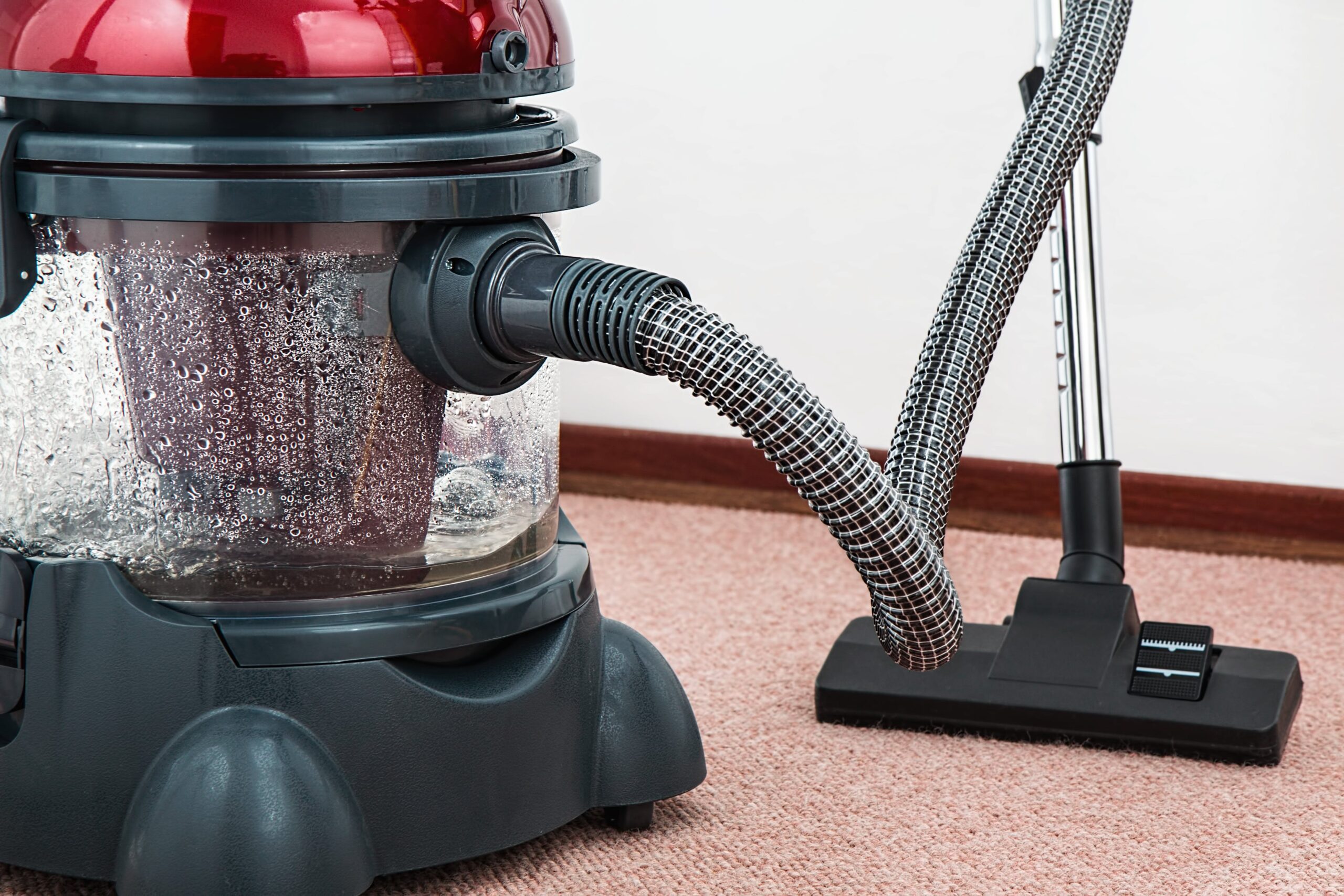Starting a carpet cleaning business in the UK can be a rewarding venture, as carpets in homes and businesses require regular maintenance.
As you embark on establishing your own carpet cleaning business, ensuring that your operations are organised, efficient, and professional is crucial for success. In the final sections of this comprehensive guide, we’ll delve into the importance of effective communication tools and streamlined business processes.
From managing appointments to projecting a polished and cohesive image, the right communication tools, marketing materials, and organisational strategies can elevate your carpet cleaning business to new heights. Let’s explore these essential aspects that contribute to the overall professionalism and success of your venture.
Here’s a comprehensive guide to help you launch your own carpet cleaning business:
Guide to Starting a Carpet Cleaning Business in the UK
1. Research and Planning:
- Market Research: Assess the demand for carpet cleaning services in your target area. Identify competitors and analyse their service offerings and pricing.
- Business Plan: Develop a detailed business plan outlining your goals, target market, pricing strategy, marketing plan, and financial projections.
2. Legal Considerations:
- Business Registration: Register your business with the appropriate authorities and choose a suitable business structure.
- Insurance: Obtain liability insurance to protect your business and clients from potential damages.
3. Training and Certification:
- Training: Acquire the necessary skills for professional carpet cleaning. Consider obtaining certification from recognised industry organisations to enhance your credibility.
- Licenses: Check local regulations for any required licenses or certifications for carpet cleaning services.
4. Equipment and Tools:
- Carpet Cleaning Machines: Invest in high-quality carpet cleaning machines, such as hot water extraction systems or dry carpet cleaning equipment.
- Cleaning Solutions: Purchase effective and eco-friendly cleaning solutions for different types of carpets.
- Drying Equipment: Industrial-grade fans or dryers to accelerate the drying process.
5. Transportation:
- Vehicle: Consider a van or truck to transport equipment and reach clients efficiently.
6. Marketing and Branding:
- Online Presence: Create a professional website showcasing your services, pricing, and contact information.
- Local SEO: Optimise your online presence for local search engine results to attract customers in your service area.
- Social Media: Utilise platforms like Facebook and Instagram to showcase your work and engage with potential clients.
7. Pricing Strategy:
- Competitive Analysis: Research pricing structures of other carpet cleaning businesses in your area.
- Service Packages: Offer different service packages, including stain removal, deodorising, and carpet protection, to cater to varying customer needs.
8. Customer Service:
- Responsive Communication: Respond promptly to inquiries, provide detailed estimates, and maintain open communication with clients.
- Customer Satisfaction: Aim for high customer satisfaction by delivering exceptional service and addressing any concerns promptly.
9. Scaling Your Business:
- Hire Staff: As your business grows, consider hiring additional technicians to handle increased demand.
- Expand Services: Explore opportunities to offer upholstery cleaning, rug cleaning, or additional related services.
10. Financial Considerations:
- Startup Costs: Estimate the initial costs for equipment, licensing, insurance, marketing, and transportation.
- Operating Expenses: Factor in ongoing costs, including cleaning supplies, equipment maintenance, fuel, and marketing efforts.
11. Earnings Potential:
- Pricing Structure: Prices for carpet cleaning services can range from £30 to £100 or more per room, depending on factors such as carpet size and the extent of cleaning required.
- Volume of Work: The number of jobs you can secure and efficiently complete will impact your overall earnings.
12. Compliance with Regulations:
- Environmental Considerations: Ensure that your cleaning practices comply with environmental regulations and that you use safe and eco-friendly cleaning solutions.
13. Adaptability:
- Stay Informed: Keep abreast of industry trends, new cleaning technologies, and changes in regulations to adapt your business accordingly.
14. Networking and Partnerships:
- Build Relationships: Establish connections with local businesses, real estate agents, and property managers who may refer clients to your carpet cleaning services.
Starting a carpet cleaning business requires a combination of technical expertise, effective marketing, and exceptional customer service. By providing reliable and efficient services, you can build a loyal customer base and establish a successful business in the competitive field of carpet cleaning.
What tools and equipment are need to start a carpet cleaning business?
Starting a carpet cleaning business requires a range of tools and equipment to effectively clean and maintain carpets. Here’s a comprehensive list of essential tools and equipment for a carpet cleaning business:
1. Carpet Cleaning Machines:
- Hot Water Extraction System (Steam Cleaner): This machine uses hot water and cleaning solution to deep-clean carpets. Look for machines with powerful suction for effective water extraction.
- Dry Carpet Cleaning Machine: Utilises dry cleaning compounds or foams for cleaning without using a significant amount of water. Ideal for delicate carpets.
2. Cleaning Solutions:
- Carpet Cleaning Detergents: High-quality, professional-grade detergents suitable for various types of carpets and stains.
- Pre-Spotting Solutions: Products designed to treat and remove specific stains like coffee, wine, or pet stains.
- Deodorisers: Neutralise odours and leave carpets smelling fresh.
- Carpet Protectors: Applied after cleaning to protect carpets from future stains and spills.
3. Drying Equipment:
- Industrial Fans or Dryers: Accelerate the drying process after cleaning to prevent mold and mildew growth.
4. Transportation:
- Work Vehicle: Van or truck to transport equipment and reach clients efficiently.
5. Cleaning Tools:
- Carpet Brushes: Agitate and loosen dirt before cleaning.
- Carpet Rakes or Groomers: Used to lift carpet fibers and distribute cleaning agents evenly.
6. Sprayers:
- Pump-Up Sprayers: Used to apply pre-treatment solutions or spot cleaners.
7. Protective Gear:
- Gloves: Protect hands from chemicals.
- Knee Pads: Provide comfort and protect knees during cleaning.
- Safety Glasses: Eye protection when using cleaning solutions.
8. Measuring and Mixing Tools:
- Measuring Cups: Accurately measure cleaning solutions.
- Mixing Containers: Containers for diluting and mixing cleaning solutions.
9. Upholstery Cleaning Tools (Optional):
- Upholstery Attachment for Carpet Cleaner: Allows cleaning of upholstered furniture.
10. Equipment Maintenance Tools:
- Toolbox: Store and organise maintenance tools.
- Cleaning Brushes and Vacuum Attachments: Clean and maintain equipment regularly.
11. Communication Tools:
- Mobile Phone: Essential for communication with clients, scheduling, and emergencies.
12. Business Software:
- Scheduling and Invoicing Software: Helps manage appointments, track jobs, and generate invoices.
13. Marketing Materials:
- Business Cards: Professional cards with contact information.
- Marketing Brochures: Informative materials about your services.
14. Uniforms and PPE:
- Work Uniforms: Professional attire with your business logo.
- Safety Boots: Protective footwear for technicians.
15. Storage and Organisation:
- Shelving and Storage Bins: Organise and store cleaning supplies and equipment.
Remember to invest in high-quality, reliable equipment and regularly maintain your tools to ensure they function optimally. Additionally, consider environmental considerations by using eco-friendly cleaning solutions. Starting with the right tools is essential for providing top-notch service and building a positive reputation in the carpet cleaning industry.
Conclusion:
In conclusion, launching a carpet cleaning business requires a strategic blend of technical expertise, efficient operations, and effective communication. As we’ve explored in this comprehensive guide, investing in top-notch equipment, utilising eco-friendly cleaning solutions, and maintaining a professional image are key components of success.
By prioritising customer satisfaction, leveraging digital tools for scheduling and marketing, and fostering a commitment to environmental responsibility, your carpet cleaning business can thrive in a competitive market. Stay adaptable, stay informed, and always strive for excellence in service. With these principles in mind, you are well on your way to building a reputable and successful carpet cleaning business in the UK. Here’s to clean carpets and satisfied customers!



